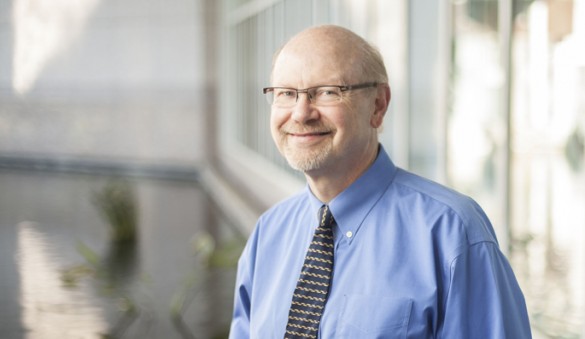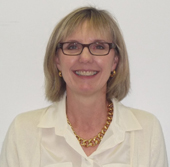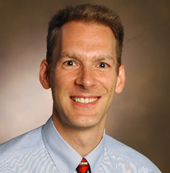
David Hall, M.D., has joined the Monroe Carell Jr. Children’s Hospital at Vanderbilt as professor of Clinical Pediatrics and the director of the new Program for Children with Medically Complex Needs within the Division of Hospital Medicine.
Hall was previously at Cincinnati Children’s Hospital, where he was director of a similar program called the Complex Care Center, as well as the Diagnostic Referral Clinic. Hall received his M.D. from the University of Chicago School of Medicine and completed a pediatric residency, chief residency and fellowship in general academic pediatrics at Johns Hopkins Hospital.
“As the region’s tertiary referral center for children with complex and coexisting medical issues, we want to be able to offer these children and their families more coordinated care that spans the inpatient and outpatient divide,” said Steven Webber, MBChB, MRCP, the James C. Overall professor and chair of the Department of Pediatrics. “Providing our medically complex patients this service should improve the quality of care that they receive through improved coordination of services, reduction in return trips to our hospital and clinics, and shorter lengths of stay.”
At Vanderbilt, Hall will develop a program for children with multisystem chronic disease. These children typically see many subspecialists and may be dependent on medical technology such as feeding tubes, tracheostomy tubes or ventilators. Subspecialty clinics may not be organized to provide needed comprehensive care, and primary care physicians often find it difficult to provide the time needed or have easy access to the resources these children and their families require.
Hall’s goal is for his team to partner with their primary care providers to coordinate their care and help families navigate what can be a complicated medical system. The program will focus on children who do not fit well into an established existing program.
“Their multisystem illnesses place them at risk for becoming “medical orphans” with no place to go to unify their care,” Hall said. “Parents may go from specialist to specialist and sometimes receive confusing and conflicting advice.
“Medical advances have led to the survival of many children who would not have survived in years past. However, this often creates a chronic condition that requires ongoing management. Children with medical complexity occupy an increasing number of beds in children’s hospitals nationally, and have high readmission rates and increased lengths of stay. These children account for 1 percent of all children, but as much as one-third of total pediatric health care costs,” Hall said.
Hall was attracted to Vanderbilt for its strong reputation. He and his wife, Michelle, were eager to be closer to family who live in Nashville and welcomed the opportunity to return to the Southeast. Prior to living in Cincinnati he and his wife lived in Atlanta for many years, where he served as medical director of the Scottish Rite Hospital at Children’s Healthcare of Atlanta, as well as a pediatric hospitalist. His exposure to children admitted to the hospital with multisystem disease and their unmet needs led to a passion for improving the care they receive.
“It’s exciting to be able to create a program that I hope will have a lasting impact on families in the Middle Tennessee community,” he said.
Hall said of their move to Nashville, “It’s is a great city with a lot of energy. I feel like we’ve come home.”
Most of all, he embraced the chance to continue the work he finds “immensely gratifying.”
“The patients and families are so grateful when someone helps take ownership of their problems. I admire their strength and resilience, and it’s a privilege to work with them,” he said.















